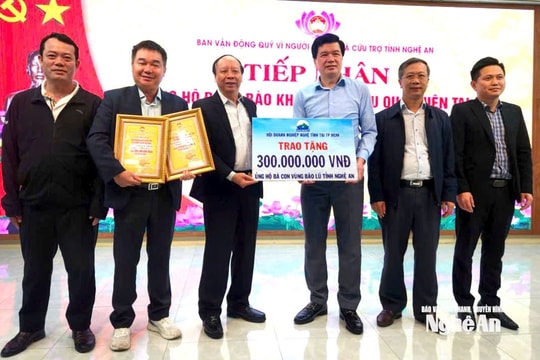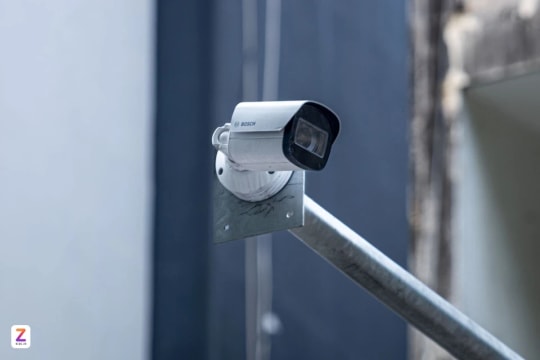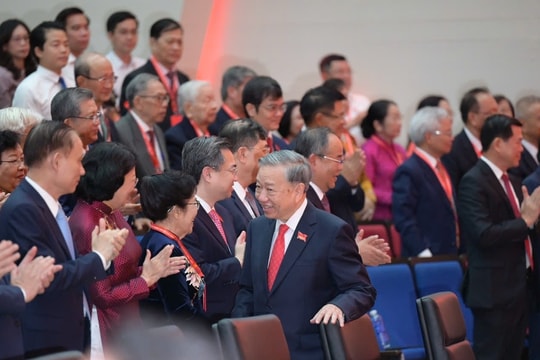Cooperation in building smart cities
In Vietnam, urban areas account for 10% of the country's area but contribute more than 70% of the total national budget revenue (GDP), of which 5 centrally-run cities account for 50% of the country's GDP. Vietnam has nearly 20 provinces and cities launching smart city projects.
Major information and communication technology (ICT) enterprises have signed many cooperation agreements to build smart cities with provinces and cities.
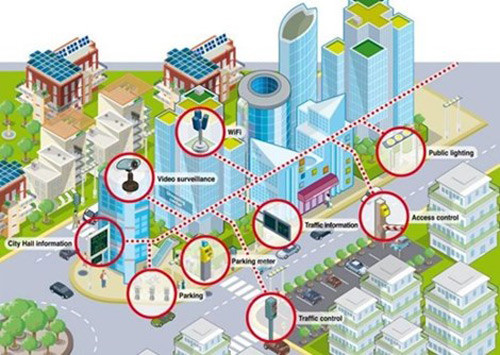 |
| Smart urban development model in Ho Chi Minh City. Photo: Contributor |
Decision No. 1819/QD-TTg of the Prime Minister approving the National Program on Information Technology Application in State Agencies' Operations has set out the goals and tasks: Deploying smart cities at least in three locations according to the criteria guided by the Ministry of Information and Communications. Resolution No. 05/NQ-TW on "Some major policies and guidelines to continue to innovate the growth model, improve growth quality, labor productivity, and economic competitiveness" also sets out the priority task of developing a number of smart cities.
» Vinh City: Allows cars to park on sidewalks on some streets
On that basis, on June 21 and 22, the Ministry of Information and Communications coordinated with the US Embassy in Vietnam and the US Trade Development Agency to organize a workshop on "Cooperation in smart urban development between Vietnam and the US". The workshop aims to provide an overview of the time, roadmap, and goals of applying information technology to build e-government towards building a smart city. |
At the workshop, delegates discussed a number of topics such as: Smart urban initiatives, global challenges and opportunities; smart cities and the Internet of Things; smart urban development in Vietnam; the relationship between smart urban planning and smart transportation; services for citizens and e-Government; financial resources and roadmap for smart city construction...
According to Mr. Nguyen Duc Chung, Chairman of Hanoi People's Committee, to develop sustainably and move towards building a smart city, Hanoi city determines the application of science and technology, especially information technology in important and urgent fields.
There, information and communication technology is applied, making the construction, management and development of the city more efficient and smarter; at the same time providing services and utilities to people and businesses, contributing to improving the quality of life and increasing the competitiveness of the economy.
Recently, Hanoi has deployed an online public service portal to provide level 3 public services in areas such as Justice, Natural Resources and Environment, Construction, Education and Training, Information and Communications on a unified and synchronous platform in 30 districts and 584 communes and wards in the area.
The city currently has 391 online public services at levels 3 and 4 (including 281 online public services at level 3 and 110 online public services at level 4), reaching nearly 20.4% of the total number of administrative procedures of the city's State agencies.
The rate of online transaction records of some public services achieved high results such as: Judicial sector of communes, wards, districts reached over 90%; business registration over 70%; tax 97%... In the coming time, the city will complete at least 55% of online public services reaching level 3; complete the construction of a 3-level shared electronic one-stop system connecting the online public service system.
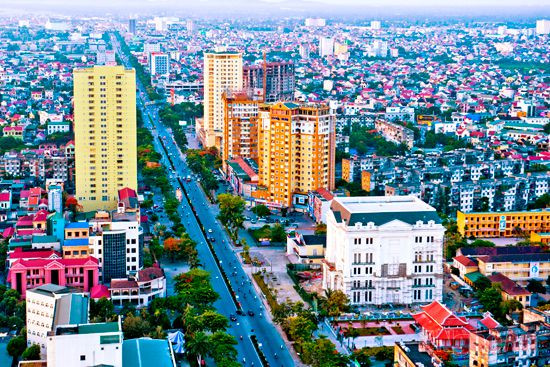 |
| A corner of Vinh city. Photo: PV |
The goal that Hanoi city sets out in building a smart city by 2020 is to basically form the core components of a smart city including: Infrastructure platform (broadband telecommunications network, sensor system, surveillance cameras, security infrastructure, information security, Data Center...); core databases (population, land, businesses...); complete the construction of Hanoi e-Government...
With that goal in mind, Hanoi has identified the development of e-government as the core to build a smart city, creating the most favorable conditions for people and businesses when communicating with government agencies, gradually improving the quality of life of people on the basis of selecting the most essential areas.
At the workshop, representatives of Da Nang city also shared their local experience in building a common information technology data system. In that data system, people and businesses can give their opinions, send images, monitor the results of work settlement of departments and branches and rate the departments and branches.
In 2016, at the common data system, Da Nang received more than 10,000 opinions and shares from people about the fields of traffic, environmental health. Da Nang also provided free wifi, making it easier for people to access the common data system.
Speaking at the workshop, US Ambassador to Vietnam Ted Osius emphasized the importance of building smart cities due to the rapid urbanization in countries around the world, especially in Southeast Asia and Africa.
The urbanization process raises many problems and challenges for managers and urban areas, so countries and localities need to build smart cities. The United States is willing to fund, support, and share experiences in building smart cities for Vietnam in general and Hanoi in particular.
Manh Khanh/baotintuc




